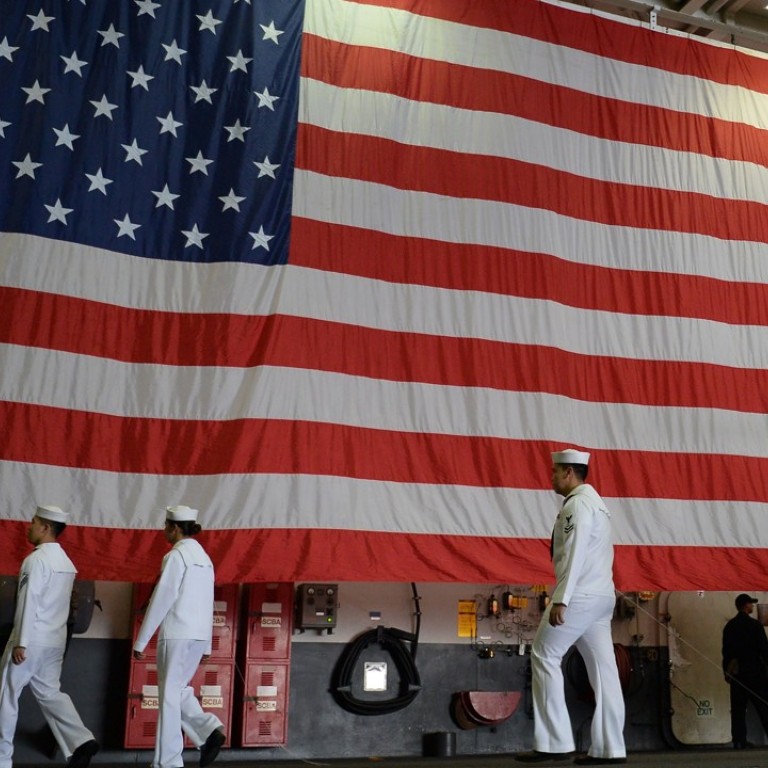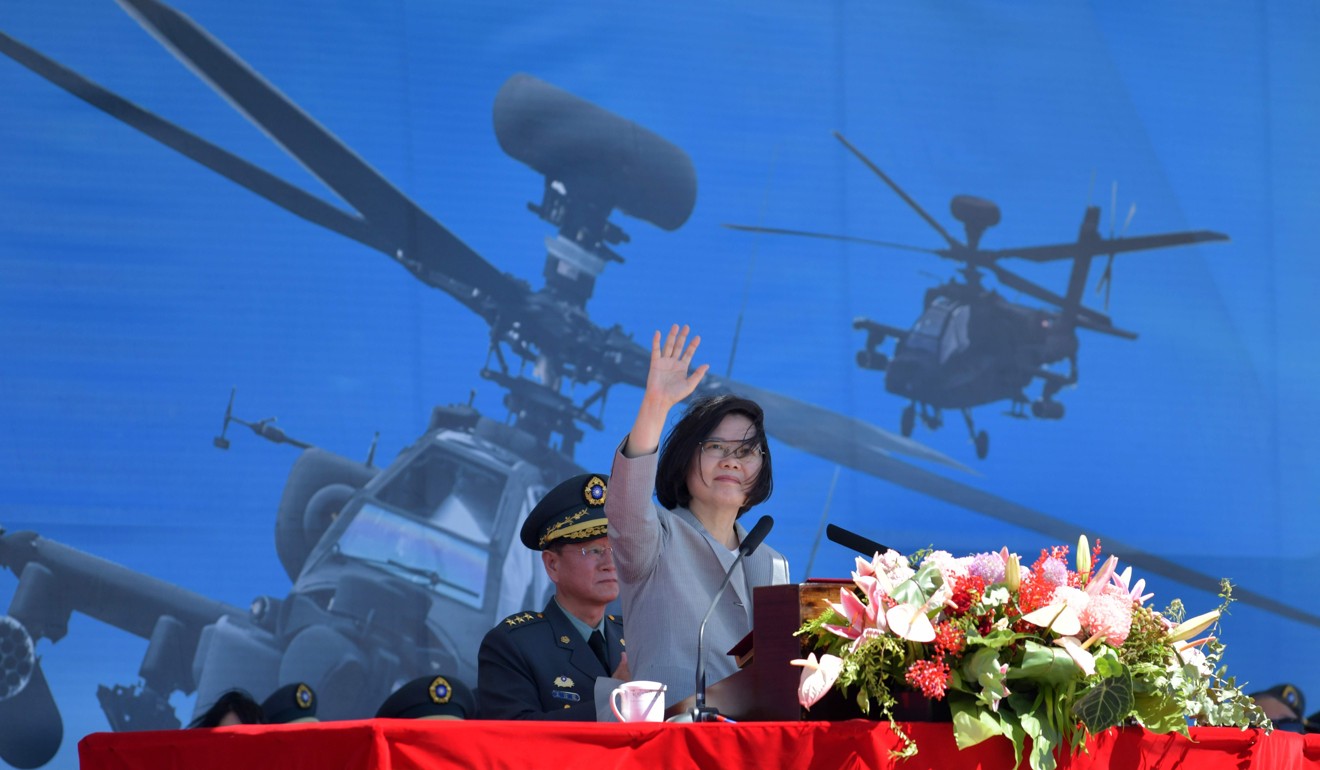
United States prepares to stand ground on Taiwan with defence spending bill
Legislation calls for Pentagon to help strengthen island’s resistance to invasion from the mainland
The US Congress is preparing to pass a defence spending bill that would implement a growing consensus in Washington to push back against Beijing, including forging closer ties with Taiwan.
The 2019 defence authorisation bill includes provisions aimed at curtailing China’s influence in Asia. Specifically, it calls for the Pentagon to adopt a more proactive role in assessing and strengthening Taiwan’s ability to resist an invasion from mainland China, which sees the democratically run island as a province.
China will also be permanently banned from Rim of the Pacific naval exercises – the world’s largest such drills that are held once every two years – unless it reverses its military activities on reefs and rocks in the disputed South China Sea. China says most of the waters are its sovereign territory, ignoring a 2016 ruling by an international tribunal that said the country’s claim had no legal standing.
Xi Jinping’s rhetoric on Taiwan may have been gentler, but his bag of carrots and sticks remains the same
The bill’s release coincides with the opening shots of a trade war as Trump imposes tariffs on billions of dollars of Chinese goods to retaliate for what he says are unfair practices that have resulted in a huge trade imbalance with the US. China has warned the US against what it describes as a “cold war mentality” and called on the Americans to respect its core interests and solve disputes thorough negotiations.

Trump’s relationship with Taiwan has been a hot issue for China since he accepted a congratulatory phone call from Taiwanese President Tsai Ing-wen after his election and questioned the “one China” principle that underpins China-US relations. Since then, the US has approved US$1.3 billion in arms sales to Taiwan, and Trump has signed legislation to encourage senior US officials to visit the island, a move that would raise its diplomatic status. The US has also agreed to provide technology for the island’s submarine-building programme.
In a March address to China’s parliament, President Xi Jinping warned that efforts to widen divisions with Taiwan would be “punished by history”. The government has ordered all airlines to stop referring to Taiwan and the former colonies of Hong Kong and Macau as countries, something the White House described as “Orwellian nonsense”.
US airlines make concessions towards Beijing’s demand to refer to Taiwan as part of China
The defence bill proposes that the US report on Taiwan’s fighting readiness, provide recommendations to strengthen its forces, expand military-to-military engagement and conduct “timely” sales of US military equipment to Taiwan. It also suggests the Department of Defence consider sending a US hospital ship to Taiwan as part of annual Pacific Partnership naval exercises.
The Communist Party-run Global Times newspaper, which sometimes takes more hawkish positions that don’t necessary reflect the views of the leadership, said in an article on Tuesday that the US and Taiwan should keep their interactions within bounds.
“When it comes to US-Taiwan joint military exercises, port visits to the island by US warships, high-level exchanges between the two, high-ranking US military officials wandering Taiwan streets like they do in South Korea, Taiwan should not even think about it,” the article said. “It is believed that the White House would not be that silly as to actually think it can do something big in terms of Taiwan. The island is China’s core interest.”
Taiwan’s presidential office welcomed the bill’s provisions, saying the US remained the island’s most important ally. “Taiwan sincerely thanks the US Congress for long-standing efforts on supporting Taiwan’s security and other affairs,” it said.
The bill awaits final approval in the House and Senate, before it is sent to Trump. While the White House has not yet issued a statement on it, the president is unlikely to veto legislation hammered out by both houses.

